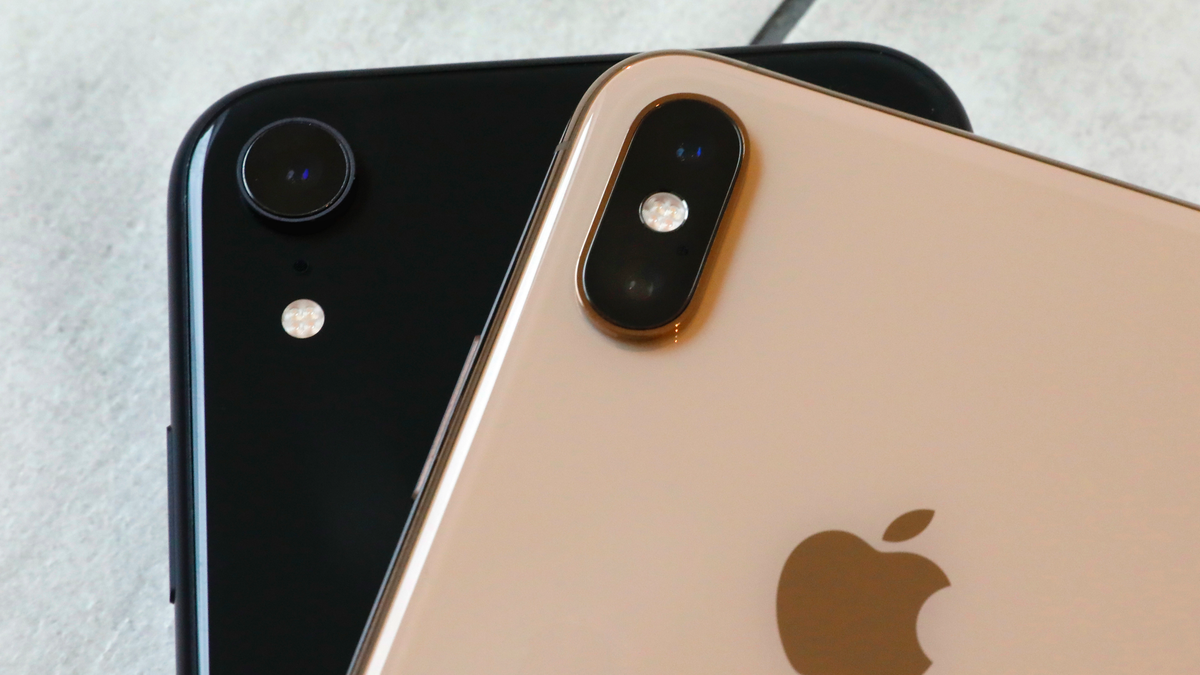
FILE- This Oct. 22, 2018, file photo shows the iPhone XR, left, that has a single lens, and the iPhone XS Max that has two lenses, in New York. (AP Photo/Richard Drew, File)
Apple settled ongoing lawsuits with Qualcomm today and announced a "multiyear chipset supply agreement," which sets the date for a 5G-powered iPhone in September 2020 at the latest.
The No. 1 smartphone maker in the US and the top cellular chipset maker in the world have been at loggerheads for about two years now over the royalties Qualcomm wanted Apple to pay for using its chips and patents. While Apple had at least in part used Qualcomm modems for several years, this year it cut the company off and switched entirely to Intel.
Before Apple and Qualcomm came to terms, the future of when the iPhone would jump on next-generation networks was quite cloudy. Apple had been heavily leaning on Intel, which has insisted it will have a 5G modem available in 2020, but various analysts doubted Intel's ability to fulfill its commitments.
There are several other 5G vendors out there, but none are appropriate for Apple. Samsung certainly wouldn't sell it modems. Huawei denied it would do so. MediaTek won't have them ready soon enough. So if Apple wanted a quality 5G modem, in huge quantities, delivered on time in 2020, it looked like it would have had to turn to Qualcomm. Now it can.
More From PCmag
The next iPhones almost certainly won't have 5G. Qualcomm's current X50 modem, which needs to be paired with a separate 4G modem, lacks the broad network compatibility and power efficiency Apple would want. Apple will almost certainly ask Qualcomm to make a custom thin modem based on its second-generation X55, which is a single modem that can work with diverse global 4G and 5G networks.
But even knowing that Apple has a good path to 5G takes a lot of air out of the Android world's competitive sails. Samsung, Qualcomm, and various Android vendors have all been promoting 5G as an "only on Android!" technology—you see the banner ads pop up whenever you run the Speedtest app. It's in Apple's interest to cut that line of thinking short.
The "multi-year" chipset agreement also takes the pressure off Apple's own modem development team. It's been an open secret for years that Apple is trying to build its own modem chips. I'd previously thought they'd have to be ready for 2021, but if Apple can rely on Qualcomm now, Apple may start phasing its own modems in around 2022.
Why September 2020?
Now it's time for real crystal balls. Why September 2020, and not any other month? September, of course, is when iPhones have been announced for the past several years.
The first X55-based 5G phones will appear in late 2019, after Apple announces its next iPhone. The design process for that 2019 iPhone is already well underway, and anyway, Apple doesn't like to release devices for networks that aren't widely available. 5G won't be widely available in the US until AT&T and T-Mobile push out their nationwide low-band 5G coverage in 2020.
Also in 2020, meanwhile, the three major Chinese carriers will probably start to demand that their high-end phone makers support 5G to be carried in their stores. Apple needs those Chinese sales, so it needs to go 5G.
The question then becomes whether Apple would be willing to do an out-of-cycle 5G iPhone, maybe in March 2020 with the iPads, to juice sales—or, for that matter, to do a 5G iPad next year. Apple's past practice has been to wait just a little while longer as new networks become established. We saw this with both 3G and 4G, where Apple delayed a year or two compared to its early-adopter competitors. September 2020 will still be very early in 5G network rollouts, and it would give Qualcomm time to make a special modem to fulfill Apple's requirements.
The clock is ticking now. Early 5G development will be done on Android, to be sure. But Apple knows that only the earliest adopters will pick up 5G phones this year. The masses will go for that Qualcomm-powered 5G iPhone, next year.
This article originally appeared on PCMag.com.








































